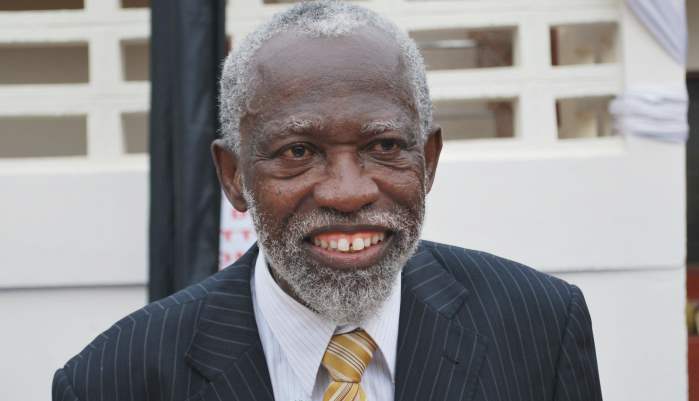
Address potential food insecurity - NDPC urges govt
The National Development Planning Commission (NDPC) is advocating urgent measures to address any potential food insecurity in the midst of the COVID-19.
In that regard, it has called for the establishment of efficient national, regional and local storage facilities and distribution systems geared towards preventing spoilage of food items.
These were contained in a number of recommendations submitted to the government recently.
The recommendations were contained in a document titled, “ Policy Response to job and welfare impacts of COVID 19: A focus on vulnerable groups.’’
Among others, the recommendations suggested guidelines towards addressing the job and welfare impacts of COVID-19 in the country.
In the view of the NDPC, “ In all this, local government has a role to play. Local government should develop a strong collaboration with farmers and other agents in this direction, and the government policies on planting and rearing for food and jobs should be directed to boost the production of essential commodities, particularly, given the challenges associated with imports from other nations.”
Subsidy
Further recommendations were on the need for the government to subsidise personal protective equipment (PPE) in the efforts to fight the global pandemic.
The commission, therefore, suggested that the government subsidise the cost of commodities such as the approved nose masks and sanitisers to enable the average poor households to buy them at lower prices to protect themselves.
Financial institutions
The NDPC also advocated the setting up of a national mobile money account to mobilise emergency funds from individuals and groups to minimise the burden on government’s revenue and scarce resources.
The commission encouraged mobile network companies not to charge any fee on such transfers.
In attempts to identify vulnerable workers, the commission also recommended that local government operatives should rely on market leaders in the various markets.
“Also, government can rely on database at the various assemblies regarding store operators. Since these operators pay some levies, the assemblies will be in a good position to have the database regarding the degree of business diversity and vulnerability, as well as the contacts of associated workers/operators,” it added.
Furthermore, the NDPC called on banks to give flexible and emergency loan facilities to average workers at a zero or minimal interest rate, with the government serving as the sole guarantor of those loans.
Apart from that, the commission said banks should be encouraged to give a grace period to borrowers, particularly for the average earners who were currently servicing a loan.
“This will enable such borrowers to save extra funds to cover essential commodities. That grace period may expire with the pandemic,” it added.
Protection during crisis
Giving further details, the NDPC said: “Ensuring social protection programme in this pandemic season will require reliable information and database for every worker, the unemployed, children, persons with disabilities and households.”
It noted that Ghana like other developing nations was largely handicapped in that direction.
“Nevertheless, in times of crisis, the government has no option but to develop strategies to minimise anticipated jobs and welfare shocks both at the present and post-pandemic periods,” it submitted.
According to the NDPC, having a strategic policy response was even critical in times of a prolonged pandemic, which could result in a partial or complete nationwide lockdown.
Private companies
The commission also encouraged private companies to provide a loan facility and other incentives to workers who express interest but with a particular focus on those that are quite close to the national minimum wage threshold.
“Religious leaders are encouraged to devise a strategy to provide in kind or cash transfer to the vulnerable members. This transfer programme, as much as possible, should be extended to other identifiable needy and vulnerable non-members in the community.
“Beyond this, religious organisations should be motivated to provide other financial and non-financial support at the national, regional and local level in this fight,” the commission added.
CSR
The NDPC further called on the government to appeal to companies to extend their corporate social responsibility (CSR) in these times of the pandemic to cover more areas.
“If possible, the government should appeal to both public and private workers who earn above a certain threshold to freely accept to donate a certain percentage of their monthly earnings to support vulnerable groups,” it said.
It added that where possible, the government should provide incentives to public and civil servants who are below a certain threshold such as those who earn close to the daily minimum wage.
Support programme
The commission also called on the government to strengthen the current Livelihood Empowerment Against Poverty (LEAP) initiative.
“If possible, the quantum of the transfer to designated poor households should be increased and possibly expanded in terms of coverage,” the commission added.
It further said specific attention should be geared towards minimising the impact of the pandemic on rural economies and the northern part of Ghana because of “the evidence of high incidence of extreme poverty and vulnerability in those areas.”
“It is recommended that the COVID-19 Welfare Committee should be set up for the purpose of communication, disbursement and distribution, monitoring and evaluation of various social protection programmes, proper documentation and data management for future policy formulation,” the commission said.
